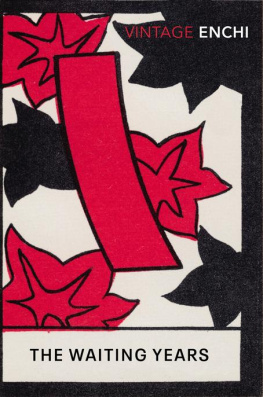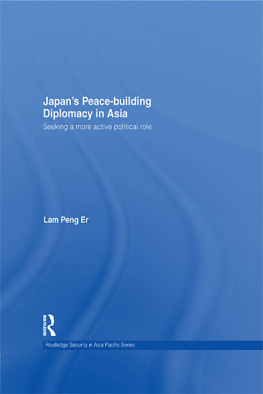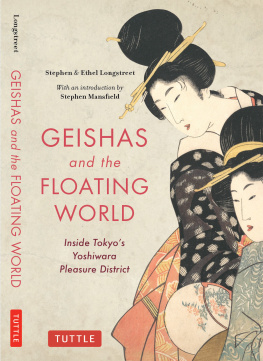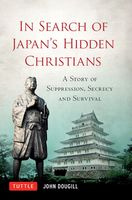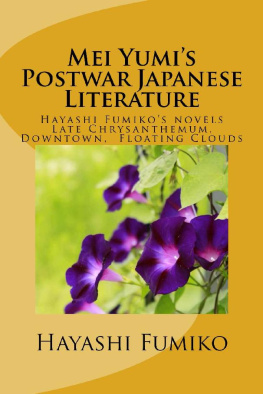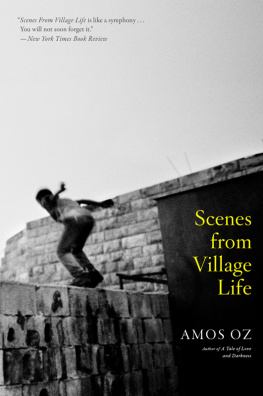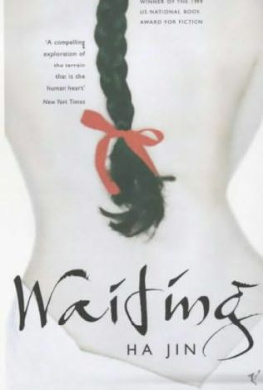
Fumiko Enchi
THE WAITING YEARS
TRANSLATED FROM THE JAPANESE BY
John Bester

Contents
About the Author
Fumiko Enchi was the pen-name of Fumi Ueda, one of the most prominent Japanese women writers in the Showa period of Japan. Her first play, A Turbulent Night in Late Spring, performed at the Tsukiji Little Theatre, was a success and a short story published in 1952, Days of Hunger, was acclaimed by the critics and won the coveted Women Writers Prize.
On the publication in 1957 of The Waiting Years a novel she took eight years to write she won Japans highest literary award, the Noma Prize. Enchi was made a Person of Cultural Merit in 1979, and was awarded the Order of Culture by the Japanese government in 1985. She was elected to the Japan Art Academy shortly before her death in 1986.
ALSO BY FUMIKO ENCHI
Days of Hunger
Masks

I
First Bloom
It was an afternoon in early summer.
At the Kusumis house that backed onto the Sumida River at Hanakawado in the Asakusa district of Tokyo, the mother, Kin, placed a white clematis from the garden in the alcove of one of the two adjoining rooms upstairs that she had been cleaning assiduously since early morning, and patting her hip with an air of weary finality came climbing down the dark wooden staircase.
In the small room next to the entrance hall, her daughter Toshi sat beneath the wooden-barred window threading a needle for her sewing, holding the eye up against the bright light reflected from the waters of the river. She spoke as her mother came into the room carrying the thick, oiled paper on which the flowers had rested while she arranged them.
The clock next door just struck three. Theyre late, arent they, Mother?
Good gracious, is it that time already? But then, theyre coming all the way from Utsunomiya by rickshaw; they said afternoon but I expect it will be more like early evening.
Kin seated herself by the rectangular charcoal brazier and lit the tobacco in the tiny bowl of a longish, bamboo-stemmed pipe.
Youve been hard at it since this morning, Mother. I expect youre tired, said Toshi with a pleasant smile. She ran her sewing needle in and out of her double bun, which was coming slightly undone, then stuck it into the red pin cushion on the stitching stand. Next, she gently transferred her sewing some material that looked like heavy silk crepe from her lap to a piece of wrapping paper and went over to her mother, dragging her bad leg as she went. She too felt she deserved a rest.
I wonder how it can get so dusty when I clean the place every day, said Kin, smoothing out her kimono sleeves that had been tied up for housework and fastidiously dusting off the black satin collar of her kimono with her hand. She did not mention it to her daughter, but she was secretly proud of having removed every speck of dust from the room, of having mounted a pair of steps even, so as to wipe the last traces of dust from the openwork panel over the lintel between the rooms and from the groove above the lintel itself.
I wonder what Mrs. Shirakawas coming up to Tokyo for, said Toshi, who was apparently less interested in the cleaning than her mother and was rubbing her eyes, which were tired from sewing, with her fingertips.
What, exactly, are you hinting at? Kin frowned suspiciously at her daughter. The mother was still youthful in outlook and the daughter had been prevented by sickness from marrying until it was too late, so that by now they were used to talking to each other more as sisters than as parent and child. Occasionally, even, Toshi seemed more elderly in her ideas than her mother.
She said in her letter, didnt she, she was coming to Tokyo to do some sightseeing?
Even so, I wonder. Toshi tilted her head portentously to one side. I wonder whether a young married woman like her really has time to come up to Tokyo just to do the sights. Mr. Shirakawas a chief secretary or something at the prefectural office, isnt he? Only just below the governor himself
Thats right. They say hes a very influential man, said Kin, tapping her pipe on the edge of the brazier. Yes, hes certainly got on in the world. I never thought hed do as well as that when he was working at the Tokyo City Hall and they lived next door to us. Not that he didnt have all his wits about him even then.
Thats just what I mean, Mother, said Toshi, as though urging her mother on. Its all too casual, somehow, for her to leave a husband whos as busy as that and come up for a month or two of sightseeing, bringing her daughter and a maid and all. It isnt as though her own family lived here.
Youre right she comes from Kumamoto, the same as Mr. Shirakawa himself. Even so, though Kin looked hard into her daughters face as though the problem was beyond the grasp of her own imagination. Surely they couldnt be thinking of a divorce? There was no hint of such a thing in Mr. Shirakawas letter.
I dont suppose there was, said Toshi. Her elbow rested on the covered end of the brazier, with her chin propped on her hand, and her eyes had a dreamy look as though gazing into the future. Even though Toshi was her own daughter, there were times when Kin was disturbed by the odd way that the crippled girls presentiments had of coming true. For a while she gazed at Toshis face with the air of one awaiting the utterance of a medium, but before long Toshi took her elbow off the brazier.
Theres no telling, she said.
It was an hour or so later that Tomo Shirakawa, accompanied by her nine-year-old daughter Etsuko and a maid, alighted from her rickshaw before the Kusumis house.
First they went to the hot bath that was waiting and removed the grime of their journey, then Tomo came back down to the sitting room to give them their presents: dried persimmons and Aizu lacquer ware, which she said were local products of Fukushima, as well as lengths of cloth in suitable patterns for both Kin and Toshi.
Sitting there in her striped kimono, with the dignified loose jacket of black silk crepe decorated with the family crests, her sloping shoulders on which the clothes sat so well held slightly back, Tomo had the typical air of an important officials wife, an air acquired during the four or five years that Kin had not seen her. The breadth of her forehead and the generous spacing of her eyes and mouth about the well-shaped, somewhat fleshy nose saved her face from any suggestion of oversensitivity, but the eyes, narrow beneath the full, drooping eyelids, had an almost frustrated look, as though the lids were being used to screen off a whole variety of emotions that might have found expression there. It was this same heaviness of gaze, together with a certain formality of speech and manner, that had always made Kin, for one, sense a certain remoteness in Tomo, despite the cordiality that had developed during the two years or so that the Shirakawas had lived next door to them in Tokyo. There was no snobbishness, no unpleasantness, nothing one might censor; Kin, a typical Tokyo woman, would have expressed it by saying that Tomo kept herself to herself. Yet now that her husbands position was more important than in his younger days, this same unbending quality in Tomo gave her an undeniable air of distinction.
Next page
